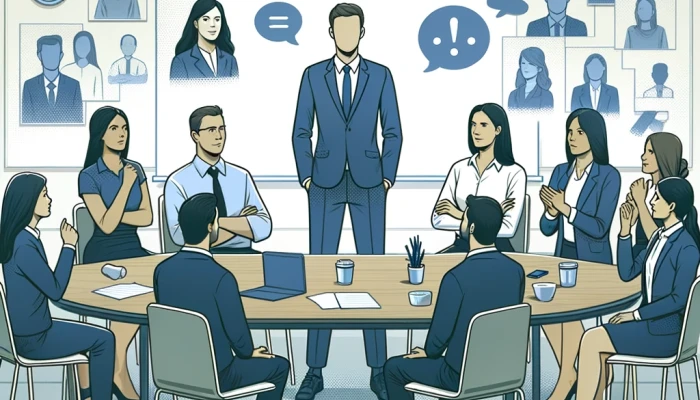Neurodiversity and mental health in the workplace
In the evolving landscape of workplace diversity and inclusion, neurodiversity remains a critical yet often overlooked aspect. Neurodiversity, encompassing conditions such as autism, ADHD, dyslexia, and others, intersects significantly with mental health and well-being at work. Understanding and embracing this intersectionality is not just a matter of creating a more inclusive environment; it's about acknowledging the unique contributions and challenges of neurodivergent individuals and fostering their mental well-being.
The intersection of Neurodiversity and mental health: Neurodivergent individuals often experience the workplace differently. For some, sensory sensitivities, social communication differences, and unique learning styles can make conventional office environments and practices challenging, impacting their mental health and job performance. Recognising these challenges and adapting workplace practices is key to supporting the mental health of neurodivergent employees.
Systemic inclusion: As Ludmila N. Praslova points out in "An intersectional approach to inclusion at work," addressing inclusion issues requires systemic changes that consider intersectionalities and embed inclusion in all talent processes. This approach is particularly pertinent when considering neurodiversity, as it often intersects with other aspects of identity, such as gender, race, and socioeconomic background.
Creating inclusive systems: To effectively support neurodivergent employees, organisations need to move beyond traditional diversity and inclusion programs. This involves creating systems that include the most marginalised and those identifying with multiple marginalised groups. Such an approach not only benefits neurodivergent individuals but also creates a more inclusive environment for all employees.
Practical steps for supporting Neurodivergent mental health:

- Inclusive recruitment practices: Reevaluate recruitment processes to eliminate biases that may disadvantage neurodiverse candidates, such as reliance on traditional interviews that emphasise eye contact and enthusiasm.
- Workplace adjustments: Simple adjustments like allowing noise-cancelling headphones, adjusting lighting, or offering flexible work schedules can significantly improve the work experience for neurodivergent individuals.
- Mentorship and support: Establishing mentorship programs and support networks can help neurodivergent employees navigate their careers and office dynamics more effectively.
- Training and awareness: Conduct training sessions to educate all employees about neurodiversity, helping to foster an environment of understanding and support.
- Feedback and participation: Involve neurodivergent employees in crafting their job roles and responsibilities, catering to their unique strengths and working styles.
By adopting an intersectional approach to neurodiversity and mental health in the workplace, organisations can create a more inclusive, supportive, and productive environment for all employees. This approach not only benefits neurodivergent individuals but also enriches the entire workplace, fostering a culture of understanding, respect, and collaboration. As we continue to navigate the complexities of the modern workplace, it's crucial that we recognise and embrace the diversity of mental health experiences and needs, particularly among neurodivergent employees.
Bridging the Gap with e-Learning
We recognise the importance of understanding and embracing neurodiversity, and offer training courses on Embracing Neurodiversity at work.
To learn more about our training programs and how they can benefit your organisation, reach out to us today, zoe.wood@enmasse2.com.
References:
https://hbr.org/2022/06/an-intersectional-approach-to-inclusion-at-work https://www.ft.com/content/676b3970-f3d9-497e-8f6f-1a5a8b679635


